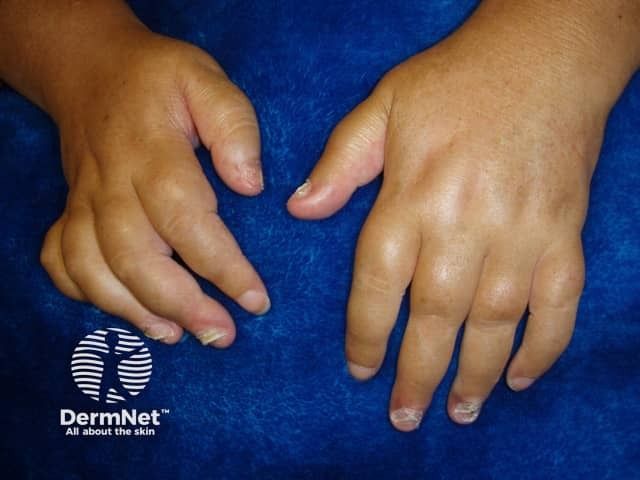- Case-Based Roundtable
- General Dermatology
- Eczema
- Chronic Hand Eczema
- Alopecia
- Aesthetics
- Vitiligo
- COVID-19
- Actinic Keratosis
- Precision Medicine and Biologics
- Rare Disease
- Wound Care
- Rosacea
- Psoriasis
- Psoriatic Arthritis
- Atopic Dermatitis
- Melasma
- NP and PA
- Skin Cancer
- Hidradenitis Suppurativa
- Drug Watch
- Pigmentary Disorders
- Acne
- Pediatric Dermatology
- Practice Management
- Prurigo Nodularis
- Buy-and-Bill
Article
Medicare cuts could hinder care
National report -- Medicare cuts that were scheduled to take effect Jan. 1 are likely to make it more difficult for many dermatologists to treat Medicare patients, according to experts.
National report - Medicare cuts that were scheduled to take effect Jan. 1 are likely to make it more difficult for many dermatologists to treat Medicare patients, according to experts.
However, sources tell Dermatology Times that for a variety of reasons, few dermatologists are likely to dump Medicare altogether in the near term if Congress allows accounts to stand.
Derms stand to lose

The first round of cuts total around 4.4 percent, says Duane M. Cady, M.D., chairman of the board of the American Medical Association (AMA). At that rate, AMA calculations show that dermatologists stand to lose $73 million total - the eighth highest loss of 38 specialties studied - in 2006, he adds.
"It's critical that Congress fix the Medicare payment system, which is obviously broken, before time runs out on January 1," Dr. Cady says.

In late 2005, the Senate passed a reconciliation bill that proposed giving doctors a one-year, 1 percent Medicare pay increase in place of the 4.4 percent cut, Dr. Cady reports.
At press time, the House budget reconciliation bill (HR 4241) had become part of Senate Bill 1932, the Deficit Reduction Omnibus Reconciliation Act of 2005, which moved to conference committee to resolve differences.

Quid pro quo
Additionally, CMS announced at the November hearing that the Administration would support reducing the scheduled Medicare reductions for 2006 and 2007, provided doctors participate in the CMS' new Physician and Voluntary Reporting Program.
However, Dr. Cady says, "We and the other six medical organizations who testified agree that before (pay-for-performance) is put into effect, the SGR needs to be fixed because it's incompatible with a pay-for-performance program."
"Dermatologists are going to get hammered by these cuts," says Brett Coldiron, M.D., clinical assistant professor of dermatology and otolaryngology, University of Cincinnati.
Not just Medicare cuts
In addition to the proposed 2006 Medicare cuts, he says dermatologists will suffer because reimbursement for actinic keratosis will fall by about 25 percent as the result of a recent AMA Relative Value Update Committee five-year review.
"When people talk about the cuts, it's not just Medicare," adds Phillip M. Williford, M.D., associate professor of dermatology and director of dermatologic surgery, Wake Forest University Health Sciences. "Most managed care contracts are multiples of the Medicare payment system. Eventually there would be reductions in managed care payments based on the Medicare cuts."
Dr. Williford says that even before any reductions, patients had difficulty being seen for medical reasons because the payment system drives dermatologists toward cosmetic and surgical alternatives.
However, he says, "A cut of less than 5 percent is not going to make everybody jump from the Medicare system."





